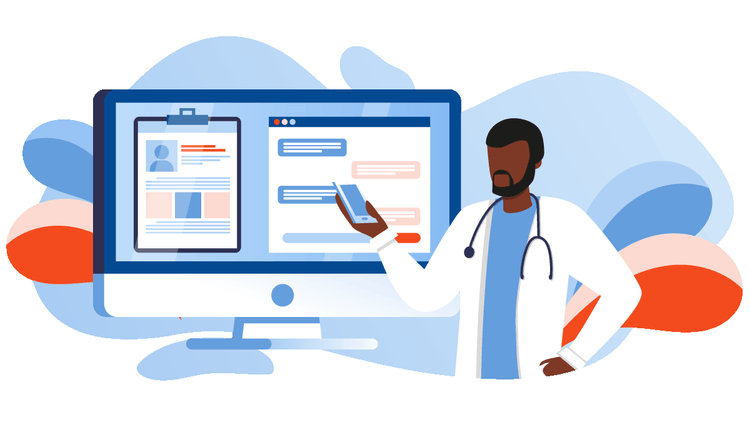How to Recognize Good Virtual Care Solutions

Finding the best virtual care for you and your family can be a difficult process. How do you know what to look for when you’re searching for a good telehealth provider? What sets one apart from its competitors?
Knowing What’s Important
The simplest answer is that the software must be HIPAA-compliant. The Health Insurance Portability and Accountability Act of 1996 (HIPAA) was introduced by legislators to protect patient privacy and ensure that each patient has access to their personal medical records.
With regard to virtual care, this means the company must take measures to ensure that their software transmits and stores your personally identifiable information securely. This high level of security prevents unauthorized access to your medical records or even your visits with an online doctor.
At the moment, all software is HIPAA-compliant due to a relaxation of the legislation while the country fights the coronavirus, but this temporary situation does not mean you should be happy to place the security of your personal information in anyone’s hands.
Why Is Some Software Not HIPAA-Compliant?
Lots of web-conferencing software exists and is used in businesses everywhere, but none of these programs are built with HIPAA in mind. The details around the budget for a new printer for the office, for example, is not as significant as the name, date of birth and existing health conditions of a patient, and as such many programs, such as Zoom and Skype, are simply not built with HIPAA in mind.
Any software provider must sign a business associate agreement with a healthcare provider in order to be complaint with the HIPAA Omnibus Rule. However, as most software isn’t specific to healthcare, providers like Skype don’t do this.
Likewise, web-conferencing or business software wasn’t designed from the ground up with healthcare in mind. For example, although Zoom offers a paid-for, HIPAA-compliant version of its software, this paid version has simply removed some features to make it compliant. This means it hasn’t been designed with the purpose of helping doctors treat patients online and has no specific features that enable it to store patient data.
Finally, one other potential area of concern is that programs like Zoom don’t do end-to-end encryption, which means your data may not be secure. As a result, it’s possible that people could snoop on your online visits. Virtually any web-conferencing software built for business meetings has no safeguards controlling access. As HIPAA was introduced in order to protect patient information, this could be troubling for some.
Are There Any Tailor-Made Virtual Care Solutions?
Yes, there are. Built from the ground up as software specifically designed to enable patient care using telehealth, these kinds of software enable healthcare practitioners to communicate with each other when discussing a patient’s care as well as set up online visits with patients themselves, all over a securely encrypted network.
Not only is this ideal for patients, it’s perfect for online doctors as well, who can access your medical records through the software, so they are prepared for your online visit.
Accessible and Simple to Us
An example of this is Backline, which is the program used by Hello Health’s PortalConnect. Fully HIPAA-compliant and built specifically for healthcare online, Backline is designed to provide the patient with a secure, simple and helpful experience.
The software is accessible but safe: you can access your patient record from a desktop, tablet or smartphone; and a simple click on a link, sent to you by your online provider, will start your visit. However, this link will also request that you complete a two-factor authentication before starting the visit in order to confirm your identity, thus providing you with more security.
It allows doctors to take notes during consultations, thus keeping your medical record up to date, and it also enables secure text messaging so that if need be, you can be contacted safely and securely by your personal doctor.
Furthermore, with some software you can also access your own patient portal, where you can access your medical records 24/7 as well as share documents with your medical provider when necessary.
Healthcare vs Business Software
This joined-up thinking for healthcare software, coupled with its security features and HIPAA-compliance, appears to make it a much more suitable option than web-conferencing or business software, and this is largely down to the fact that it has been specifically designed to meet a patient’s needs.
So next time you’re thinking about which telehealth provider to choose, make sure you take note of the software they’re using. Is the HIPAA compliance merely tagged on to this software or was it built from scratch with HIPAA, and therefore patient care, at the forefront of the designers’ minds?

